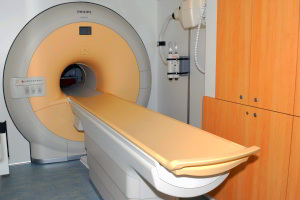Do I need an MRI to diagnose my Headache?
Over the past few years, the number of CT and MRI scans for headache symptoms have been increasing. The increase has concerned experts, and has led to campaigns to stop scans that aren’t needed.
Unneccessary scans can lead to direct health risks (particularly in the case of CT scans), they can lead to more unnecessary tests, wasted money and time, and in almost every case they will not lead to any new treatment.
 But there are times when MRIs (magnetic resonance imaging) should be requested. Along with concerns that too many MRIs are being done is the concern that doctors aren’t asking for them at the right time. A recent study in the USA indicated that many doctors may not recognize the “red flags” that warn doctor and patient that more investigation is needed.
But there are times when MRIs (magnetic resonance imaging) should be requested. Along with concerns that too many MRIs are being done is the concern that doctors aren’t asking for them at the right time. A recent study in the USA indicated that many doctors may not recognize the “red flags” that warn doctor and patient that more investigation is needed.
So – the big question – should I as a patient be asking for an MRI? Or, as a doctor, should I refer a patient to have an MRI?
The answer is complicated. And the decision needs to be made with a lot of knowledge of the context of each patient.
Before a decision is made…
What needs to be done before a final decision is made? First, a proper and complete neurological examination. This means a lot of questions from the doctor to the patient. When did the pain start? What other symptoms are you experiencing? Are the symptoms temporary, or permanent? Are they getting worse?
This will also include medical history questions, and possibly (ideally) family history questions. Do you have family members who suffer from migraine? What other conditions have you been diagnosed with? Any childhood diseases?
One great example is visiting the doctor with a new headache. A new headache is often a good reason for an MRI. However, with a family history of migraine, and a history with related disorders, and symptoms consistent with migraine, an MRI won’t be necessary. But if there is reason to suspect another cause for the headache, or certain symptoms are present – an MRI will be called for.
Other important factors are gender and age. For example, getting headaches for the first time when you’re over 50 is a good reason to consider an MRI.
So even before we look at the warning signs, we have to assume you have a qualified doctor who is asking the right questions.”Red Flags”So what are some of the danger signs that may mean you should be getting an MRI? Here are a few examples.
- As mentioned above, a new headache (a new type of headache in someone who doesn’t generally get headaches), especially if symptoms have appeared suddenly, is a good reason to call for an MRI.
- A progressive headache. When symptoms get continually worse, an MRI may be required.
- Exertion headache. Any headache that seems to come with exertion, such as straining to use the toilet, a sex headache, a headache you get when exercising. This is specifically a headache that appears directly because of exertion – most “exercise headaches” that come from moderate to intense exercise are not the same thing, and will probably not need an MRI for diagnosis.
- Headaches that change with head position, or that show signs of raised or lowered intracranial pressure. This can be tricky, because a feeling of “pressure” or “fullness” is common in migraine. But hearing sounds, a change with head position, a worsening feeling of pressure – these things may indicate another problem, and an MRI may help with diagnosis.
- Certain other symptoms, such as neuralgic pain. There are too many other possibilities to list, but one example is shooting, sudden pain along certain paths, certain vision or hearing problems, changes in behaviour and weakness.
And then what?
Even if an MRI is called for at the right time, it’s very likely that it will not show anything and simply confirm that you have a headache condition such as migraine. However, more tests may be called for if something shows up.
Many symptoms that look like something else are actually migraine. Migraine can look like stroke, or brain tumour, or sinusitis. But in certain cases it is worth it to investigate further.
If you are a doctor, this is worth taking at least a few minutes to study further. An excellent place to start is the MedScape article MRI in Headache by Dr. Michael Eller and Dr. Peter J Goadsby.
For more information, check out the links above, and also Most headache-related brain scans aren’t needed from Harvard Medical School and Imaging: Do I need an imaging study for my headache? from the American Headache Society Committee on Headache Education (ACHE).
